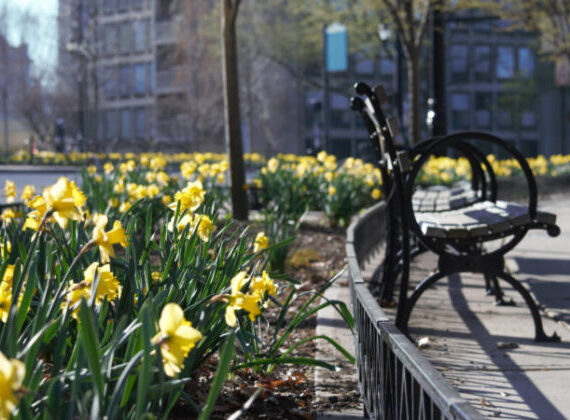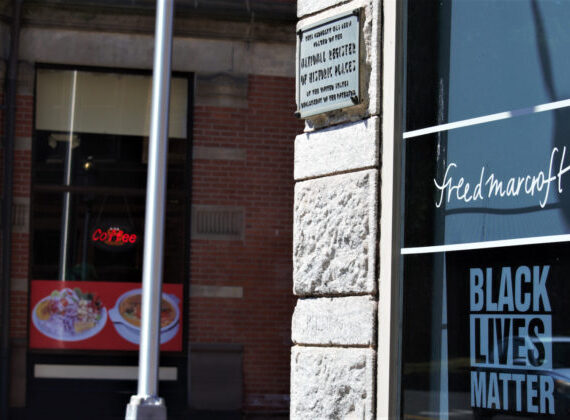Exactly one person spoke favorably about the stadium deal during Monday’s public hearing, yet members of City Council went ahead and approved the three Downtown North land purchases anyway, two of which are directly connected — either in print or geographically — to the proposed stadium.
Raquel, the one voice overtly supporting the stadium, said that “Hartford is a dead city” and that if people are out of work, it is nobody’s fault but their own. It’s not the City’s responsibility to get people to work, she said. That was the message in between her continued support for the stadium. No statistics, no research. The City is here to provide entertainment, she implied, but not jobs.
Ten individuals — eight residents, one former resident, and one individual moving into Hartford soon — spoke against the stadium plan. One woman did not speak directly about the stadium, but said that the “city looks like crap” and that it is a “dead land.”
Funding
The details of the land purchases approved by City Council were kept quiet until well into the evening, after the public comment period. According to Councilperson Larry Deutsch, most of the others on Council were not aware of the actual source of funding for these three purchases on Monday, even up to the time of the vote.
These items would be covered by the Capital Improvement Plan, Deutsch said, which budgets $3M each year for such purchases; however, the total for these three — Windsor St. at $1.78M, Market St at $340,000, and 14 parcels for $2.5M — are well above that amount.
The fourteen parcels on Ann, Main, and Chapel would likely be aggregated with the 271 and 273 Windsor Street parcels, then be presented to potential private developers. Deutsch says that the City would “probably” sell the land to those private developers, with the City advocating for stipulations about use, local hiring, and community benefits.
But Council may not know until September who those private developers would be.
Opposition to Plan Continues
Those opposing the stadium plan — which seems contingent on the purchase of properties in the area of Downtown being dubbed “Downtown North” — continued to voice concern over misplaced priorities, eroded trust, and a venture that some are calling speculative, rather than a sure bet.
Hyacinth, a resident and President of the Maple Avenue Revitalization Group, challenged elected officials to “take a walk around our city” to see the blighted buildings and properties for themselves.
Since Hartford launched its Livable and Sustainable Neighborhood Initiative, the program has experienced frequent staff turnover. The stadium plan, Hyacinth said, would not have any positive impact on residents whose quality of life issues are not being addressed expeditiously. Some of the money the City intends to spend on the stadium project, she said, should go toward hiring two people who would hold property owners accountable for keeping up properties.
Patricia, another resident, echoed this invite for City Council to take a walk and see the “cracked roads” and how people are living outside of Downtown. “Get out and see how there’s so [many] starving people” in the north and south neighborhoods of the city.
Mary said she does not “blame the Mayor or Council for falling under the spell of Josh Solomon.” The elected officials, she believes, must be where they are because they want to do good by the city, and what they are doing with this stadium plan is “grasping at straws,” desperate for some way to stimulate the economy. But, she urged them to think about their legacies.
“Somebody on this Council has to have courage” to call this plan a dud, not a spark. The “stadium will not do much to stimulate the economy” and “people will not come here and stay in a hotel” after minor league games, she said.
Anne, a resident south of Downtown, said that the people have consistently received little information during this process, the latest being with the proposals for developing Downtown North. Addressing Council, she said “it is incumbent upon you to let us know about details,” and if elected officials do not know, then “you need to find out.”
Some of the media and elected officials have regarded those not giving a rubber stamp of approval to the stadium plan as haters.
Steven said that people against the stadium deal have been misrepresented as being against the mayor. Addressing Council, Steven said: “Stop treating us with hostility.” He thanked Councilperson Larry Deutsch and State Senator Eric Coleman for “letting light into this conversation.”
Neither Mayor Segarra nor Council President Shawn Wooden were present during the public comment period Monday.
This has been a “huge failure of communication,” said JoAnne. “I’m confused about why this is a one-way communication.” The Hartford Coalition to Stop the Stadium, she said, brings information to elected officials, but gets nothing back. “The research does not support what you are doing.”
Chris, soon to be a Hartford resident, claimed that public-private partnerships have not worked, naming the Golden Gate Bridge as an example. When funding for the replacement of the bridge’s Doyle Drive went from public to public-private partnership, the project went from costing $473 million to $1.1 billion.
His point? Public-private partnerships have hidden costs.
“It is your responsibility to not take a rotten offer,” he told City Council.
About half of those speaking against the stadium and land acquisition plan spoke to how they are not opposed to development. Anne said that the Hartford Coalition to Stop the Stadium just wants to see thoughtful development.
JoAnne, said “I love baseball…I love Hartford…I’m a city booster and a city lover.”
Steven, another resident, said he grew up with baseball, but his lower-income blue collar family was not staying in a hotel, let alone buying hotdogs at the park. They would get one order of peanuts to share, and if he asked for more he would’ve gotten “slapped upside the head,” figuratively.
“I do like baseball, but there’s something about the stadium deal that stinks to high heaven,” Cornell said.
He and others from the coalition have been door-knocking and speaking with residents in the north neighborhoods. One person, he said, put it this way: “I cannot eat a baseball stadium.”
The Vote and Beyond
For the City’s purchase of 271 and 273 Windsor Street, Council voted 6 in favor, one opposed (Deutsch). Shawn Wooden and Raul De Jesús were absent from the vote. For both the purchase of the fourteen parcels and that of 360 Market Street, six Council members voted yes, with Deutsch abstaining. Wooden and De Jesús were also absent during these votes.
Members of the Hartford Coalition to Stop the Stadium have said that they remain in the fight for the long haul.


lobonick
fantastic as usual… linking the stadium scenario to previous and continuing anti-blight work is absolutely correct.. the stadium situation appears to be a large rock rolling down a hill and picking up steam…